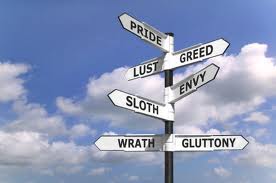Words are often wasted. 'Why' is a bit of a biological surprise.
Shaping a teenager's mind is done by lecturing; true? No. Well, maybe, but perhaps not the way we might hope.
The decisions a teen makes about their own life
are not made based on words and arguments. True? Yes.
Note in the illustration
where decisions are made and note where language is processed; not as closely connected as you'd expect, right?
When are decisions made? Compared to the tedious deliberations of the neocortex that move slowly through mountains of information, decisions can arrive quickly; in some cases, almost instantaneously, from the non-verbal multipath analysis of the limbic arena. The science is imprecise, but the basic concept is generally agreed and validated.
Decisions most often follow the gut response based on the individual's current set of values and evaluations. Discussions, arguments, and lectures may contribute; words can explain and perhaps clarify values, but that's not how the values themselves are formed.
Curious where a kid gets their values? They learn by the examples they're given, by what they see and experience. Words may explain and clarify what it all means, but the values themselves are learned. And, as we grow older, we can refine our values by choice of experience.
 |
From recent studies, we find that the brain is
continually being formed throughout our lives,
not just during the early years.
|
How does the brain work?
Neocortex (the outer dome) - all the rational and analytical thought, and language.
Limbic brain (the core) - all of our feelings like trust and loyalty, and
no language ... and it is where most of our decisions are made.
Right there, in a realm without words, our decisions are made.
Decisions are the centerpiece of progress or the lack of it, of course. Interestingly, all of us are being similarly formed, and it is a continuous process until our life's end.
While the neocortex might be the repository of language and information, the components of the limbic system are where memories are established and retrieved for reference. Faces and first impressions are handled here as well. Trust and evaluation of trustworthiness occur here triggering decisions about making or avoiding relationships.
Words offered along the way are evaluated and judged for consistency with the non-verbal cues. If they match up, they may clarify things. If it's a power play and the gut response doesn't concur, the response is an increased tension and eventual conflict, the non-productive kind.
Words can inspire us. They can provoke us to appreciate something good, particularly if the speaker includes stories to illustrate. The stories give the hearer opportunity to envision themselves in the context offered. It's an appeal to existing values, perhaps.
So the next time you find yourself lecturing your teen, don't bother. You might try relating by coming alongside and negotiating on the basis of values (principles held, good conscience choices, and virtue). You'll perhaps have a better chance of making the connection needed.
Thinking about it, we can see why just listening to sermons isn't likely to change anyone's heart and soul and mind. Encountering God himself, on the other hand, is a life-changing, and value-forming experience. ... fearfully and wonderfully made.
















